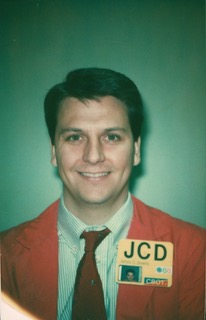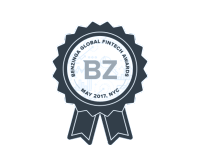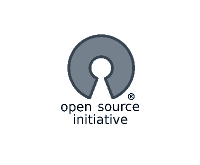
Jim Downs founded Connamara in 1998 during a software development and tech boom along with soon-to-be giants like Google and PayPal. Beginning in 2008, Downs began working on a matching engine technology that would ultimately form the basis for Connamara Technologies and the EP3 Matching Engine. But for every Connamara, hundreds of software engineering companies did not experience longevity and success.
But what made Connamara outlast its early competitors? Is there any secret to braving the uncertainty of starting a new business venture? In light of our 25th birthday, we asked founder and CEO Jim Downs for his tips on entrepreneurship.
Do you think founder age is a determining factor in success? What would you say to people wanting to break ground in their 20s? In their 50s?
JCD: I was in my early 40s when I founded our company, but I don’t think my age was a factor. Each age group has its own set of advantages and challenges. If you are younger, you may have a higher appetite for risk than someone 20 years older. If you fail, the consequences may be less. You have a longer time to recover and try again. On the other hand, a younger person may not have the life experiences or network to guide them, to weather challenges, or to manage their employees.”
Were you afraid to fail?
JCD: Yes and no. Once Connamara started to get more employees, I felt that I was responsible for everyone’s careers, their livelihood. Whenever an employee got married, had children, and bought a house, I felt a greater responsibility. It was on my shoulders to get the next client and ensure we delivered. I also feel a profound commitment to our clients. Connamara’s clients trust us to provide crucial software –a trust I never wanted to violate. Lastly, a failure would impact my family. I could not and would not let my family down.
How did you overcome these fears?
JCD: The support of my spouse, Maureen. I could not have started or sustained this business without her. If you have a spouse or partner, always be honest with them about the state of your company. It affects them too. I don’t mean to bring every day-to-day issue or challenge to them. But make sure they know how the business is doing. In my case, my wife was my support, my sounding board. She is my co-founder, a 50/50 partner, and on the Board of Directors; she is a true partner in every sense of the word.

What do you think it takes to be an entrepreneur?
JCD: Any founder worth their salt must be able to make decisions. My motto is, “any decision is better than no decision at all.” Be quick with these decisions, but don’t hurry. There’s a distinction. Then, don’t be wed to any single choice. Know that plans sometimes must change. Admit when you’re wrong and immediately take the appropriate action to correct it. Finally, you need to care about your employees and your customers. You need to realize that you don’t have a business without them.
If you had to do it all over again, what would you do differently?
JCD: I would have realized the value of my time. Once we were successful, I should have hired experts to work in the business (accounting, marketing, sales, HR) to allow me to work on the business. If I had done this, Connamara would have grown faster. Here is another quote that captures my mindset. “If your business depends on you, you don’t own a business, you have a job. And it’s the worst job in the world because you’re working for a lunatic.” I was a bit short-sighted, but it all worked out in the end.

Key Takeaways:
- There’s no perfect time in one’s life to start a business.
- It’s okay to be afraid if your biggest fear is letting down your employees and clients. It means you’re a good leader.
- Lean on your immediate network for support and guidance.
- Making decisions is better than no decisions at all.
- Hire experts in their field to support the pillars of your business, like HR and marketing. Doing so frees up time for you to focus on building the company.
- Be quick, but don’t hurry.
- Don’t be wed to any one choice. Be able to change and adapt.
- Admit when you’re wrong.
- Realize that you don’t have a business without your employees or customers.


















